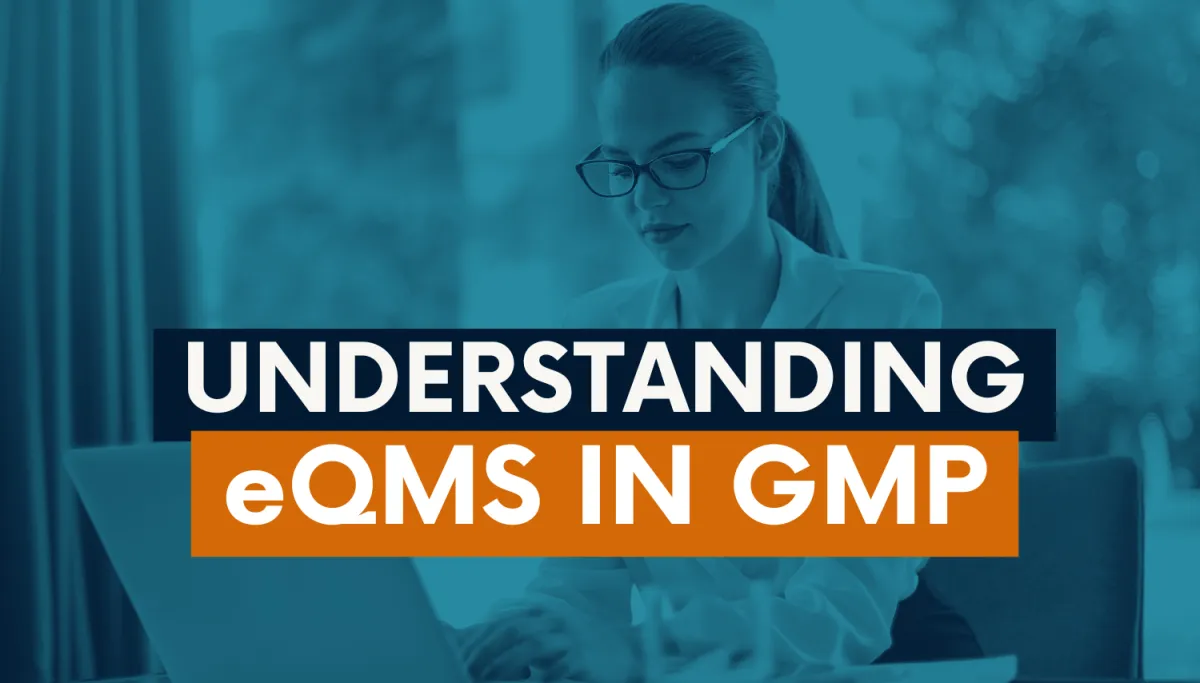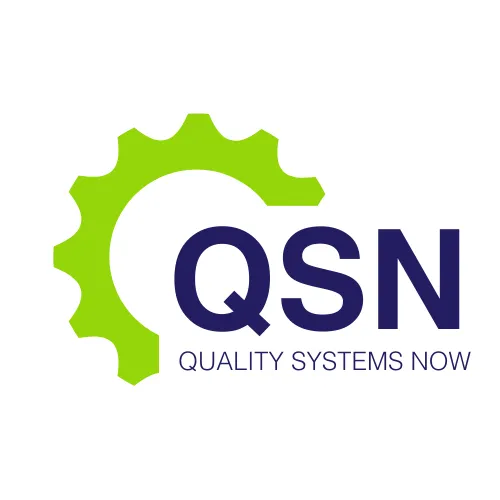LATEST NEWS

Understanding eQMS in GMP
Understanding eQMS in GMP: A Critical Tool for Compliance and Operational Excellence
In the landscape of Good Manufacturing Practice (GMP), maintaining stringent quality control and documentation processes is paramount. With the increasing complexity of regulatory environments, many organizations are adopting electronic Quality Management Systems (eQMS) to streamline their operations and ensure compliance. This paper explores the essential role of eQMS in GMP, discussing its key functions, benefits, and challenges. Through a comprehensive understanding of eQMS, companies can optimize their quality processes, enhance data integrity, and improve operational efficiency.
At Quality Systems Now, helping Your Organisation through these complexities is what we do.Lets have a chat about it.
The Necessity of eQMS in GMP Environments
Good Manufacturing Practice (GMP) standards are a set of regulations enforced by national and international health authorities to ensure that products are consistently produced and controlled according to quality standards. Compliance with GMP regulations is critical in industries such as pharmaceuticals, biotechnology, and medical devices, where product quality and patient safety are paramount.
A core requirement of GMP is the ability to maintain stringent documentation and control over manufacturing processes. Traditional paper-based systems for managing quality processes are often cumbersome, prone to error, and inefficient. As a solution, many organizations are turning to electronic Quality Management Systems (eQMS) to digitize and automate key quality management tasks, such as document control, corrective and preventive actions (CAPA), and internal audits.
This paper examines how eQMS solutions can drive compliance in GMP environments, enhance operational efficiency, and provide a more reliable and scalable platform for quality management.
What is eQMS?
An eQMS is a digital platform designed to manage and automate the core quality management processes of an organization. Unlike traditional paper-based systems, an eQMS consolidates all quality-related data in one centralized platform, providing real-time access to critical information. The primary functions of an eQMS include document control, CAPA management, audit tracking, risk management, and supplier quality management, among others.
The eQMS serves as a digital repository for all GMP-required documentation and records, ensuring that they are accurate, up-to-date, and easily accessible. This digitization improves the efficiency of quality management processes by reducing the need for manual intervention, minimizing errors, and providing a clear audit trail for regulatory inspections.
Role of eQMS in GMP Compliance
GMP regulations, such as those enforced by the U.S. Food and Drug Administration (FDA) and the European Medicines Agency (EMA), emphasize the importance of documentation control, data integrity, and traceability. GMP-compliant organizations must demonstrate that their manufacturing processes are well-documented, consistently followed, and capable of producing safe, effective products.
An eQMS plays a crucial role in ensuring GMP compliance by automating and streamlining the documentation and control processes required by these regulations. Key functions of an eQMS in the context of GMP compliance include:
Document Control: GMP requires that all procedures, work instructions, and batch records are properly documented and controlled. An eQMS ensures that all documents are stored in a secure, version-controlled environment, with automated workflows for review, approval, and distribution. This helps prevent unauthorized changes to documents and ensures that only the most up-to-date versions are used in manufacturing processes.
Corrective and Preventive Actions (CAPA): CAPA management is a critical component of GMP compliance, as it involves identifying, investigating, and resolving quality issues that could affect product safety or efficacy. An eQMS automates the CAPA process by providing a structured workflow for initiating, tracking, and closing CAPA investigations, ensuring that issues are resolved in a timely and effective manner.
Audit Management: Regulatory agencies frequently conduct audits to assess an organization’s compliance with GMP standards. An eQMS facilitates audit readiness by providing a centralized platform for managing audit schedules, tracking audit findings, and documenting corrective actions. This streamlines the audit process and ensures that organizations are always prepared for regulatory inspections.
Data Integrity and Traceability: GMP regulations require that all data related to manufacturing processes is accurate, complete, and traceable. An eQMS ensures data integrity by providing automated controls that prevent unauthorized data manipulation, along with detailed audit trails that document every action taken within the system. This level of traceability is critical for demonstrating compliance during regulatory audits.
Key Benefits of eQMS in GMP
The implementation of an eQMS offers numerous benefits for organizations operating in GMP-regulated industries. These benefits include enhanced efficiency, improved data integrity, and greater scalability.
1. Efficiency
By automating manual quality management processes, an eQMS significantly reduces the time and effort required to manage documents, CAPA investigations, and audits. Automated workflows streamline the approval process, eliminate bottlenecks, and ensure that tasks are completed on time. This results in fewer errors, less rework, and faster resolution of quality issues.
2. Data Integrity
Data integrity is a cornerstone of GMP compliance. An eQMS ensures that all quality-related data is accurate, secure, and traceable. By enforcing electronic signatures, user access controls, and audit trails, the system helps prevent unauthorized data manipulation and ensures that all actions are properly documented. This reduces the risk of non-compliance and ensures that data meets regulatory standards.
3. Centralized Control
An eQMS provides a single, centralized platform for managing all quality-related data and processes. This makes it easier for organizations to monitor compliance across multiple sites and departments. With all data stored in one place, it becomes easier to track trends, identify potential risks, and ensure consistent application of quality standards.
4. Scalability
As organizations grow, their quality management needs become more complex. An eQMS is highly scalable, allowing organizations to expand their quality processes without sacrificing efficiency or control. This makes it an ideal solution for companies looking to expand into new markets or increase production capacity while maintaining compliance.
5. Better Decision-Making
The real-time data provided by an eQMS enables more informed decision-making. By providing insights into quality trends, potential risks, and performance metrics, the system allows organizations to make proactive decisions that improve product quality and reduce the likelihood of compliance issues.
Challenges of Implementing eQMS in GMP Environments
While the benefits of eQMS are clear, there are several challenges that organizations may face during implementation.
1. Compliance with Regulatory Requirements
Implementing an eQMS in a GMP-regulated environment requires careful consideration of regulatory requirements such as 21 CFR Part 11, which governs electronic records and electronic signatures. Organizations must ensure that their eQMS meets these requirements to avoid potential compliance risks.
2. Integration with Existing Systems
Many organizations already have legacy systems in place for managing quality processes. Integrating an eQMS with these systems can be challenging, particularly if the systems were not designed to communicate with one another. Successful integration requires careful planning and coordination between IT and quality teams.
3. Change Management
Transitioning from a paper-based system to a digital eQMS can be a significant cultural shift for an organization. Employees may resist the change, particularly if they are unfamiliar with the new technology. Effective change management strategies, including training and clear communication, are essential to ensure a smooth transition.
4. Cost and Return on Investment (ROI)
The initial cost of implementing an eQMS can be significant, particularly for smaller organizations. However, with proper planning, the long-term benefits—such as increased efficiency, reduced compliance risk, and improved product quality—can result in a positive return on investment.
Are You Ready to start Your eQMS journey?
An electronic Quality Management System (eQMS) plays a critical role in ensuring compliance with GMP regulations while enhancing operational efficiency and data integrity. By automating key quality management processes and providing real-time access to critical data, an eQMS helps organizations reduce compliance risks, improve product quality, and scale their operations. While the implementation of an eQMS may present challenges, the long-term benefits make it a valuable investment for any GMP-regulated organization aiming to achieve operational excellence.
